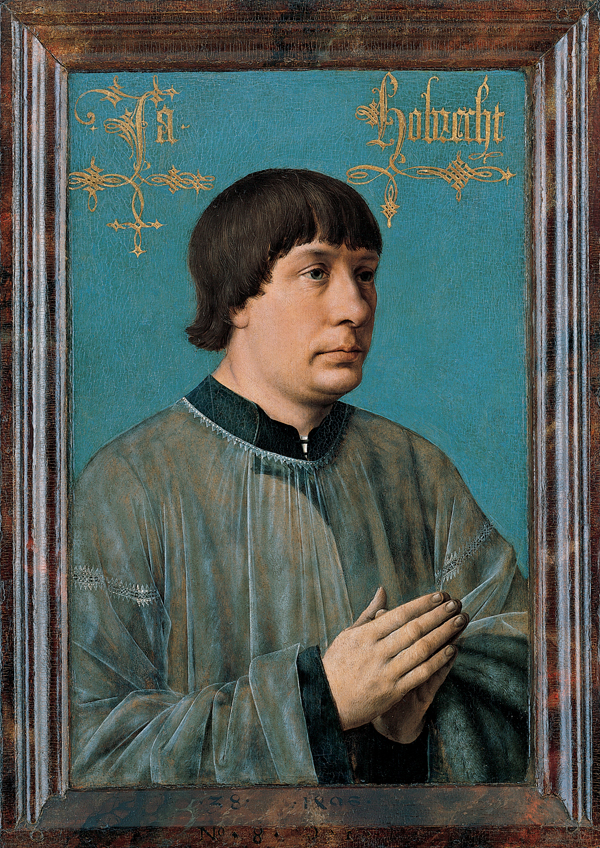Obrecht, Laudes Christo Redemptori
 We know that Jacob Obrecht was born in the Netherlands on St. Cecelia’s Day, November 22, but there is no record of the year. Historians offer dates ranging from 1450 to 1458. The earliest date of 1450 is derived from the fact that Obrecht became a priest and said his first mass in 1480. That event traditionally occurred after the priest’s 30th birthday.
We know that Jacob Obrecht was born in the Netherlands on St. Cecelia’s Day, November 22, but there is no record of the year. Historians offer dates ranging from 1450 to 1458. The earliest date of 1450 is derived from the fact that Obrecht became a priest and said his first mass in 1480. That event traditionally occurred after the priest’s 30th birthday.
Although there is evidence that Obrecht lacked diligence in his routine duties, music theorist Johannes Tinctoris included him in a 1475 list of renowned composers that included Dunstaple, Dufay, Ockeghem, and Busnois. To be placed in such high company at the age of 25 is a significant achievement. It would be even more remarkable had he been born as late as 1457-1458.
Laudes Christo is a four-voice sacred motet with a Latin text. Each of the four voices sings similar melodic material and has equal importance. The voices combine in highly complex imitative counterpoint. Hearing all the points of imitation is neither easy nor necessary. You really need to study the score to see how it all works. But it relatively easy at the beginning to hear each voice enter with the same melody at a different pitch. Once all four voices have entered, the texture becomes rather dense. The phrases in one voice overlap those of another, creating a continuous weave. As the work progresses, you may still be able to discern certain phrases and motives being echoed in other voices.
A complete searchable list of the Friday Performance Picks is now available here.




How wonderful to see Obrecht’s portrait from our collection at the Kimbell Art Museum in Fort Worth! I have introduced it to many visitors as a docent there and remember when it was purchased and first displayed with music of his playing quietly in the background. Scholars are now pretty confident who the artist is (Quinten Metsys) but the work was purchased because of the beauty and fine workmanship of the painting. As a musician I find Obrecht’s work wonderful to sing, much more fun than just listening to it! Thank you for introducing him to your readers and listeners.
Having been certified in Prof Carol’s lavish educational course on “Early Sacred Music,” in which I acquired a new taste for medieval music, I appreciate this motet by my fellow Dutchman Obrecht (500 years my younger) in a way I couldn’t have before: I understood its weave structure. Thank you, thank you, thank you, Prof Carol and Dr. Reynolds!